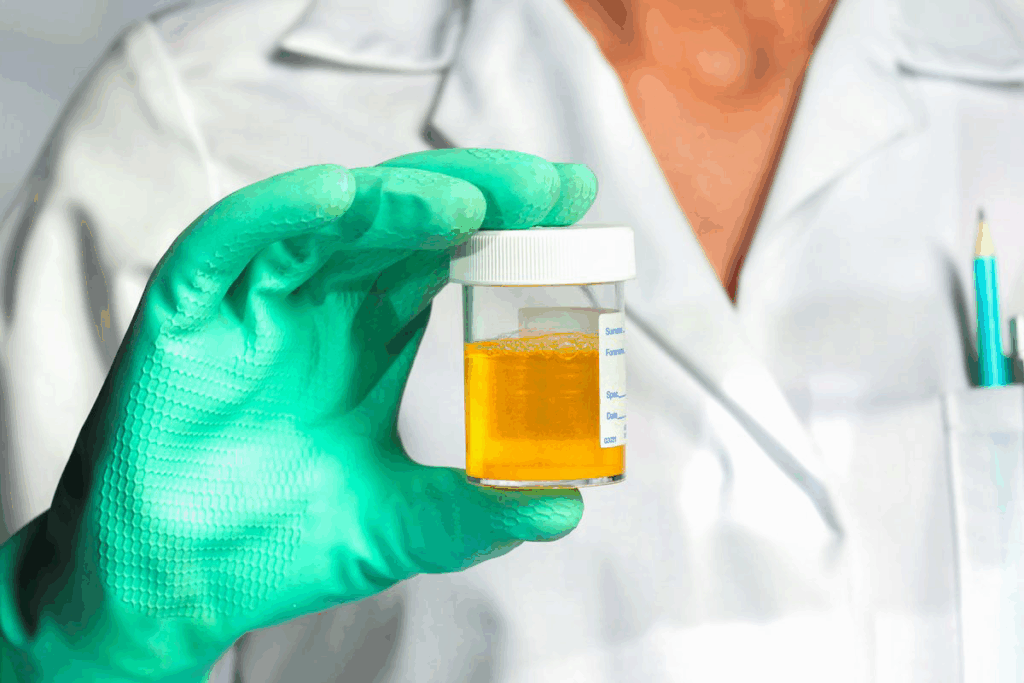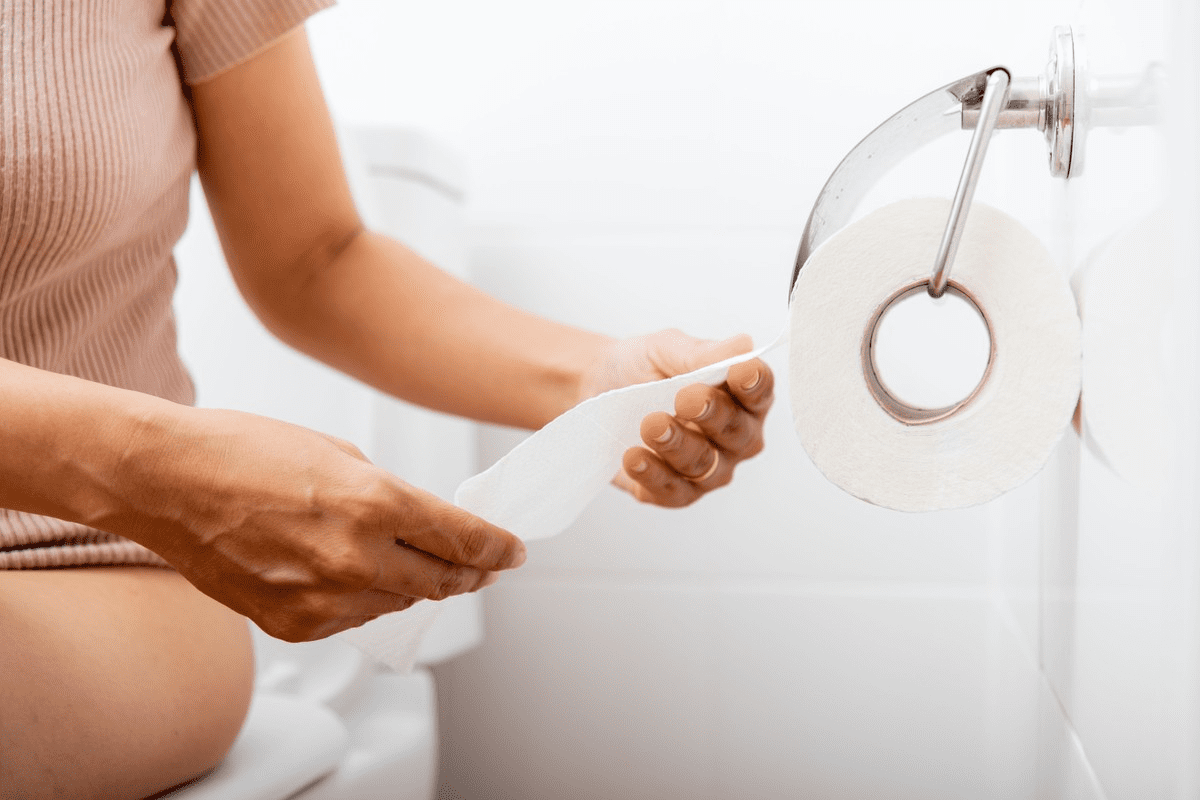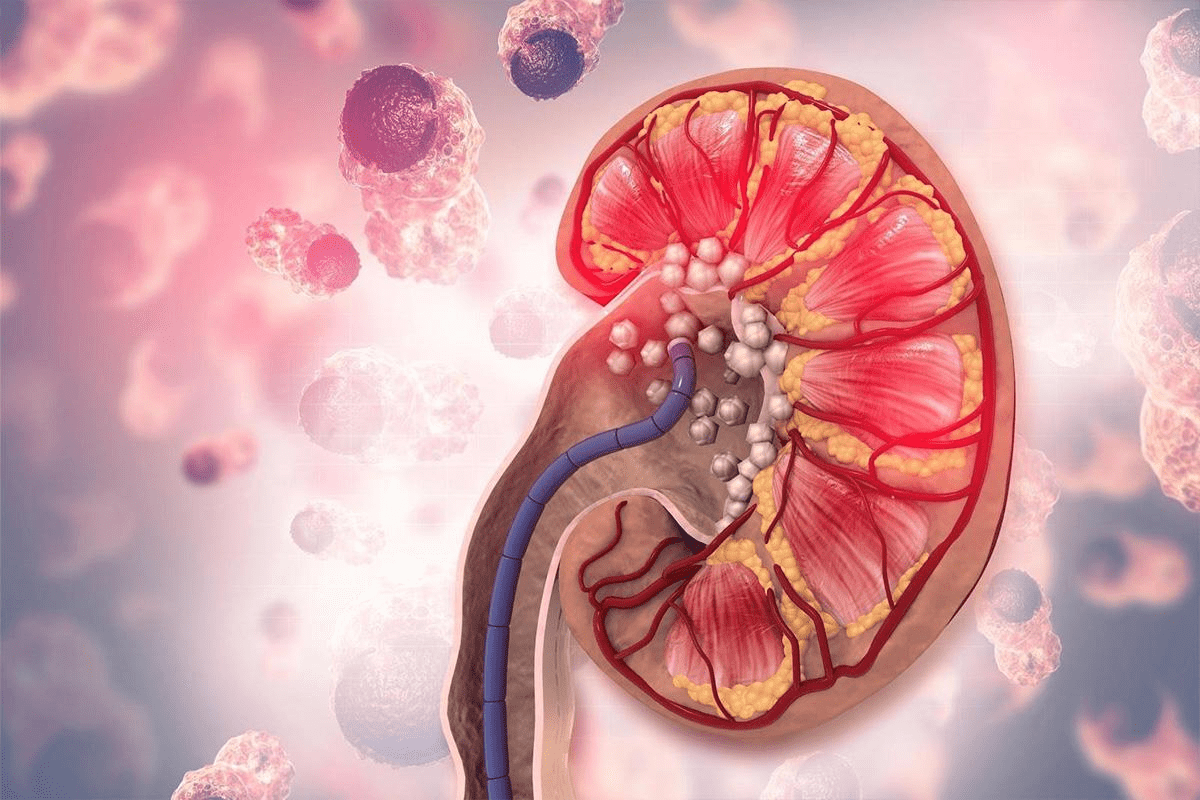Last Updated on November 25, 2025 by Ugurkan Demir

Finding tissue in your urine can be scary. It’s important to know that it might mean different things. It could be due to infections or even more serious health issues. We’ll look into why this happens and what you should do next.
Why is there tissue in pee? Learn about the causes of tissue or membrane passing through urine and what it could signify for your health.
Seeing tissue in your urine is a cause for concern. It’s key to take action quickly. We’ll talk about what might be causing it and why you should see a doctor.
Tissue in urine can signal a health problem. Knowing the causes helps in finding the right treatment.
Healthy urine is light yellow. But, if it’s cloudy or has particles, it’s not normal.
Many things can cause tissue in urine. These include infections, stones, and some medicines.

Tissue in the urine can signal several health issues. It’s important to know the causes to get the right treatment. Urinary tract infections are a big reason for this symptom.
Treatment varies based on the cause. It might include antibiotics or other steps. Knowing the cause helps in finding the best way to fix it.
Urinary tract infections (UTIs) are common and can cause tissue to appear in urine. The link between UTIs and tissue in urine is complex. Knowing the causes and effects is key to treating it effectively.
UTIs happen when bacteria, like E. coli, get into the urinary tract and cause infection. This can lead to inflammation and damage to tissues. As a result, tissue may appear in the urine.
Symptoms of UTIs vary, but common ones include pain while urinating and frequent need to urinate. Some people may also see blood in their urine. In severe cases, UTIs can cause kidney damage.
Treatment for UTIs usually involves antibiotics to kill the bacteria. Drinking plenty of water also helps. It flushes out bacteria and lowers the risk of complications.
By knowing the causes and symptoms of UTIs, people can get medical help if they notice unusual signs. Early treatment can prevent long-term damage and reduce complications.

Kidney stones can cause a lot of pain and lead to other problems. One issue is tissue fragments in urine. The stones can irritate the urinary tract, causing micro-tears. This results in tissue fragments being released into the urine.
It’s important to understand how kidney stones and tissue fragments are connected. If you have symptoms like severe pain, blood in your urine, or see tissue fragments, get medical help right away.
Pregnancy brings many changes to a woman’s body. One of these changes is white specks or cloudiness in the urine. This can be due to urinary tract infections (UTIs), kidney stones, or proteinuria.
It’s important to know the causes and when to seek medical help. This ensures a healthy pregnancy for both mom and baby.
Renal papillary necrosis is a serious condition. It damages the renal papillae, often due to diabetes, analgesic abuse, or infections. Symptoms include blood in the urine, flank pain, and frequent urinary tract infections.
Treatment focuses on fixing the underlying cause. It also aims to manage symptoms to stop further damage.
STIs can lead to urinary health problems, like tissue in the urine. It’s important to know the causes and symptoms to manage them well.
Chlamydia and gonorrhea are common STIs. They can cause inflammation and tissue shedding in the urinary tract.
Practicing safe sex and getting medical help when needed are key. They help prevent and manage STIs.
When to Seek Medical Attention
If you find tissue in your urine, it’s important to see a doctor. Look out for signs like tissue or blood in your urine, pain while you pee, or trouble starting to pee. If you see these, get help right away.
A doctor can check you out, figure out what’s wrong, and tell you what to do next. Getting help early can make a big difference. It can help you feel better and avoid bigger problems.
Figuring out if there’s tissue in your urine takes a few steps. First, we do a urinalysis. Then, we might use imaging studies and look at your medical history.
Urinalysis is key to start. It helps spot any oddities and points us to what’s next.
Next, we use tools like ultrasound or CT scans. They let us see inside your urinary tract. This helps us find any problems.
Understanding your medical history and doing a physical check are also vital. They help us figure out why you might have tissue in your urine.
Treatment for tissue in the urine varies based on the cause. For urinary tract infections, doctors usually prescribe antibiotics. If you have kidney stones, treatment might include pain relief, staying hydrated, and sometimes surgery.
Making lifestyle changes is also important. This can include changing your diet and drinking more water. These steps can help manage and prevent the issue. Always talk to a healthcare professional for the right diagnosis and treatment plan.
Understanding why tissue is in your urine is key to staying healthy. If you notice tissue in your urine, see a doctor right away. Early treatment can greatly improve your health.
Knowing the possible reasons for this issue helps prevent bigger problems. By focusing on your urinary health, you keep yourself in top shape. This way, you can enjoy a healthy life.
Seeing tissue in your urine might mean you have a health issue. It could be due to infections, kidney problems, or other conditions.
Common reasons include urinary tract infections, kidney stones, and some sexually transmitted infections. These can cause tissue to appear in your urine.
Some urine changes are normal in pregnancy. But white specks or tissue might mean there’s an issue. Always check with your healthcare provider if you notice anything unusual.
A urinalysis is used to check for abnormal cells, proteins, or substances in your urine. More tests, like imaging studies, might be needed to find the cause.
Yes, tissue in urine can sometimes point to a serious problem. If you have severe pain, trouble urinating, or other concerning symptoms, get medical help right away.
Keeping your urinary tract healthy is key. Practice good hygiene, drink plenty of water, and manage any health conditions you have. This can help prevent tissue in your urine.
Treatment varies based on the cause. It might include antibiotics for infections, lifestyle changes, or sometimes surgery. Your doctor will decide the best treatment for you.
Bladder Tissue, ScienceDirect – https://www.sciencedirect.com/topics/medicine-and-dentistry/bladder-tissue
Subscribe to our e-newsletter to stay informed about the latest innovations in the world of health and exclusive offers!